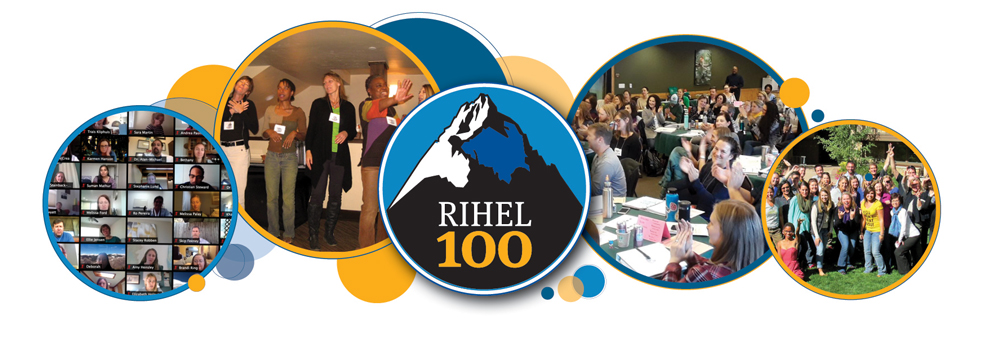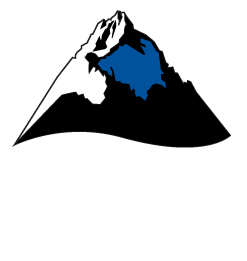Leadership Stories
Stories
A leadership learning experience.
Interview with Stacey Sanders, Founder and Executive Director of Elevating Connections and a RIHEL Alumna
Stacey Sanders attended the Advanced Leadership Training Program in the 2016 class, at the suggestion of an Advanced Physician Leadership Program graduate and former RIHEL board member. The two were collaborating on bringing Camp To Belong, a camp experience for siblings separated in foster care, to Colorado. Recognizing the need for more than a once-a-year connection, Stacey established Elevating Connections in February 2015 to offer additional connecting events throughout the year, and received their 501(c)3 designation in October of that year.
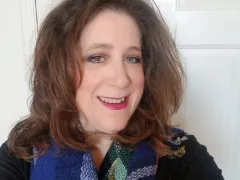
“The timing was incredible,” says Stacey. Recognizing the challenges of building a program like Elevating Connections from the ground up, Stacey knew she had to build her leadership skills. “One of the things that stood out from the very first session in Florissant and has stuck with me since, is the very big difference between a manager and a leader. I went into ALTP thinking I had pretty strong leadership skills. No, no, no. I had management skills.”
Through the lessons of collaborative leadership taught in the ALTP, Stacey built a philosophy of leadership that relies on promoting the strengths of her team. Incorporating the insights from both the EQi (emotional intelligence assessment) and the LPI-360 to help identify areas for personal development allowed Stacey to bring complementary skills in the team. “The Camp To Belong camp director Mike, and I have very different styles and strengths. But we work together really well.” Within her role at CASA, Stacey has employed coaching techniques with both her fellow case coordinators and with the CASA volunteers she supervises. “Before, with my volunteers, I would be like ‘let me jump in and solve the problems for you’. After ALTP, I started using coaching questions to let people get to the solution on their own.” This has empowered her CASA volunteers to be stronger advocates for the kids they serve.
Stacey’s personal theory of leadership embraces the idea that leaders don’t have to have all the answers. “When that realization hit for me – and I have a very clear picture of it hitting during a [Elevating Connections] board meeting right after our second [ALTP] retreat in Estes Park – I took control and kept us focused on the mission. I recognized that it was about coming together as a team to build the organization. That has been the model I’ve used since. I can say confidently that I have an incredible team around me – the board and our volunteers – each who bring something unique and special to the team.” The building of the board has been strategic, working to identify and recruit board members and volunteers that allow Elevating Connections to reach into parts of the broader community, and open opportunities that might not have existed without the board and volunteer diversity.
Stacey has credited ALTP with expanding the way she thinks about being a leader. For her, it’s not about knowing it all or being able to do it all. It’s about building a network that is diverse and that can come together to contribute in a way that is meaningful to the people that Elevating Connections and that CASA serve.
RIHEL provides leadership training, builds linkages among leaders, and strengthens the relationships among health professionals, environment professionals, the academic community, the public sector and the private sector. The Institute was founded and sustained for fourteen years by the U.S. Centers for Disease Control and Prevention. Financial support for the Institute has been provided by the many sources included in the “Sponsors” section.
Spotlight: Rick Coffin
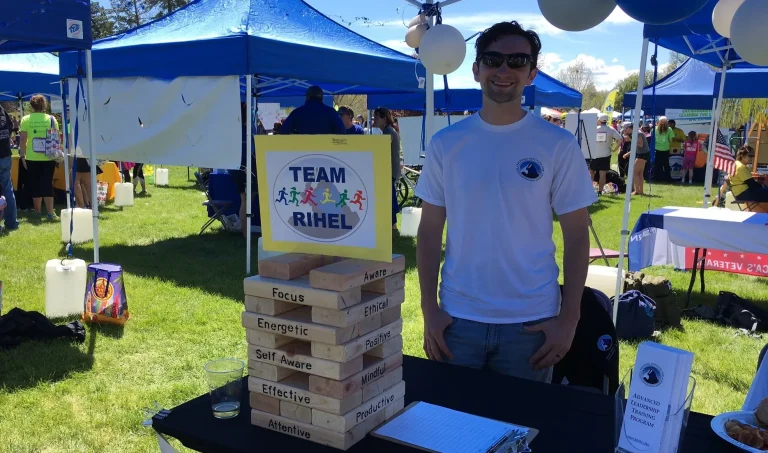
What drew you to RIHEL originally?
“I was originally drawn to RIHEL for several reasons. I heard stories from colleagues about how rewarding their RIHEL experiences were and I wanted to experience it for myself. I have a strong interest in personal and professional development and the Advanced Leadership Training Program (ALTP) seemed like a great learning opportunity as I would be exposed to a wealth of resources from the RIHEL faculty. I am also an environmental advocate and I looked forward to meeting my RIHEL cohorts from regional environmental and public health institutions. I am grateful that my employer, the Colorado Department of Public Health and Environment, also sees the value in this opportunity and they are very supportive of sending staff to the ALTP.”
What have you gained from your experience (as a fellow, volunteer, or coach) with RIHEL?
“As a fellow I gained a deep understanding of myself, including how I react to certain situations and interactions and techniques that I can use to change any behavior that I was unhappy with. This was a powerful insight that had positive impacts in both my professional and personal life. I also gained a greater understanding of many other things, including emotional intelligence, mindfulness, professional communication (e.g., media training), and how to be effective in difficult situations. As a first-year coach I am enhancing my strategic thinking, communication, and development skills.”
Why do you support RIHEL as a volunteer and coach?
“I support RIHEL as a volunteer and a coach because I have been given so much from the RIHEL faculty and alumni. I want to help others receive the same benefits and growth that I have gained from my experience. The ALTP and my coach helped me navigate through a particularly difficult time in my life and I know that other fellows have had similar experiences. I also need to mention that volunteering with RIHEL is rewarding and fun! The RIHEL staff, fellows, and alumni are great, sincere people to be around.”
Why is RIHEL important to you and the community?
“RIHEL is important to me and the community, specifically the ALTP, because the program structure provides fellows with an opportunity for self-reflection and professional growth in a meaningful and effective manner. Anyone can read an article or a book about self-improvement or professional development, but the ALTP includes highly accurate self-assessment tools, training, and networking opportunities during 4 retreats. The retreats are structured to give you the time to reflect. We are all so busy nowadays and having this retreat time to reflect is precious because it gives you a chance to integrate what you have learned about yourself into your life and into the communities that you live and work in.”
What would you tell someone who is thinking about participating with RIHEL?
“I would encourage anyone who is thinking about participating in RIHEL to apply. I think that it can be useful to a person in any stage of their career. This is an opportunity for self-exploration and personal and professional growth in a safe and supportive setting. It is also a very useful networking experience, as it promotes relationship building with others in the public health and environmental sector of our region.”
Spotlight: Stephanie Denning
Discover why Stephanie Denning, a graduate of the 2010 Advanced Leadership Training Program (ALTP) and a RIHEL Coach continues to choose RIHEL.
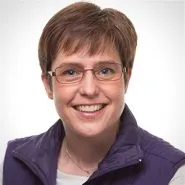
What drew you to RIHEL originally?
“I was interested in participating in a program with a group of people who also wanted to learn and build their leadership skills. I had heard others talk about RIHEL and how much they enjoyed it, so I thought it would be fun and a great way to get to meet new people, while learning how to be a better “leader”.”
Why is RIHEL important to you and the community?
“We need leaders in the public and private sectors who are able to think critically about the complex and often divisive issues facing virtually all of our communities. These leaders need to be armed with the right technical, professional, and social/emotional skills to work across and within political, economic, social, cultural and geographic arenas to build policies and programs that create communities where everyone can thrive. RIHEL helps participants to develop these kinds of skills, pushes them to think bigger and go deeper, to challenge their cherished assumptions and be something more. RIHEL helps create the kind of leaders our communities need.”
What would you tell someone who is thinking about sponsoring or donating to RIHEL?
“Just Do It! I believe I gained tremendous personal and professional value and made amazing, lasting friendships through my experience through the ALTP. That value has grown exponentially as I have stayed connected with RIHEL through the Peer Coaching program. I’ve seen that same value manifested in others who have participated in the program and have supported fellows who I know also benefitted personally and professionally from their RIHEL experiences.”
RIHEL Gave Me Confidence to Run My First Marathon
Written by Rachel Jervis, Advanced Leadership Training Program Class of 2017
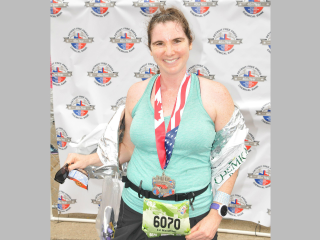
On May 5, 2017, I graduated from RIHEL’s Advanced Leadership Training Program (ALTP). On October 15, 2017 I completed my first marathon. The latter is a direct result of the first.
I’ve been a runner since moving to Colorado in 2007. Over the years I’ve completed numerous short and mid-distance races, including six half marathons. I never planned to run a marathon. I’d joke “I’m such a slow runner that I’d have to stop mid-race for a meal.” I feared injuring myself, abhorred the time commitment, and was dubious that I could physically complete a marathon even if I wanted to. In short, marathons held no appeal to me.
I’ve been a runner since moving to Colorado in 2007. Over the years I’ve completed numerous short and mid-distance races, including six half marathons. I never planned to run a marathon. I’d joke “I’m such a slow runner that I’d have to stop mid-race for a meal.” I feared injuring myself, abhorred the time commitment, and was dubious that I could physically complete a marathon even if I wanted to. In short, marathons held no appeal to me.
Fast-forward to April 2017, when I was in the homestretch of the RIHEL Advanced Leadership Training Program (ALTP). Since attending college in Boston, I find myself glued to Boston Marathon results and human-interest stories each Patriot’s Day. Unlike previous years, some part of my brain wondered if I could conquer 26.2 miles. In a row. I confessed this thought to a friend on a long run the following weekend. Having completed multiple marathons and a full ironman, she assured me that with proper training I could finish a marathon. That evening I thought, Maybe I should run a marathon.
One of my focuses during the ALTP was to use strong, confident language (no more “I just wanted to ask if perhaps you could…”). In discussing this, a RIHEL classmate told me that she’s stopped saying “should” as it implies value/judgement. From that point on, I worked to eradicate “should” from my vocabulary. So when I caught myself thinking I maybe should run a marathon, I rephrased with confident language: I am going to run a marathon. The next words out of my mouth were equally strong: Oh %*@$, I’m going to run a marathon!
“When I caught myself thinking I maybe should run a marathon, I rephrased with confident language: I am going to run a marathon.”
The ALTP demonstrated the value of a documented plan and skilled mentorship/coaching. Accordingly, I hired a fantastic coach (http://mercuriarunning.com/) to get me to the start line feeling confident and across the finish line still enjoying running. I expected the mindfulness and emotional intelligence work during the ALTP to increase my confidence marathon training, but I didn’t realize how interrelated they would be. In addition to four runs a week, two strength sessions, daily core work, and stretching, my coach assigned weekly “mental toughness” readings or podcasts. I found myself talking about the ALTP and sending her RIHEL resources in response to my homework.
During five months of training, I ran 539.73 miles to prepare to run the marathon. I went from a goal of “just finishing” to thinking that maybe, just maybe, I could complete my first marathon in under four and a half hours.
I met my coach for a “shake out run” the Thursday before the race. The following day I was flying to Detroit. The weather forecast called for heat and humidity. Despite summer heat conditioning, there was no way I could safely run 26.2 miles in under 4.5 hours in the predicted weather; and if I tried I could risk not finishing at all. My coach reassured me that I was trained for a 4.5 hour race, but it wasn’t 4.5 hour race weather. I agreed to readjust my goal to complete the race in under 5 hours and promised to go out nice and slow. Only if I felt good at mile 10 would I pick up my pace, but ultimately I would run conservatively.
Driving home from my last coaching session I burst into tears. I didn’t want to try for a sub-5 hour marathon. I wanted a cool, crisp fall morning where I could push the pace. I’d trained for months, couldn’t the weather cooperate? Mental toughness and emotional intelligence be damned, I had a meltdown.
On race day morning, my father and 5 friends who’d come to cheer me on showed up in the hotel lobby wearing matching “Run, Rachel, Run” shirts. I burst into tears again, this time tears of gratitude for all the people who had supported me along my marathon journey. Starting (unknowingly) with my RIHEL classmate who told me she doesn’t say should anymore. I dug into my emotional intelligence reserves and told myself today I run the best first marathon I can.
On race day morning, my father and 5 friends who’d come to cheer me on showed up in the hotel lobby wearing matching “Run, Rachel, Run” shirts. …[I] told myself today I run the best first marathon I can.
It was 70 degrees at the 7am start time, I sweat more in that race than all my training runs combined, and my visor blew off in the final quarter mile because the wind was so strong. But it was an amazing race day. I started slow, felt good enough to pick up the pace at mile ten, chatted with other runners, and kept going. I never hit the proverbial wall. When my friends met me at mile 24 to pace me in, I was all smiles. I crossed the finish line at four hours, 51 minutes, and 44 seconds.
This summer I’m focusing on some shorter trail runs to challenge myself with hills and enjoy the mountain scenery. I plan to run my second marathon in 2019. It will give me the opportunity to strive for a 4.5 hour marathon and continue practicing resilience and other ALTP skills.
Spotlight: Carmen Martin
This month meet our Governing Board member Carmen Martin. Carmen Martin, MPH, is a Senior Community Health Specialist for Kaiser Permanente, and has served on the RIHEL Board since January 2016.
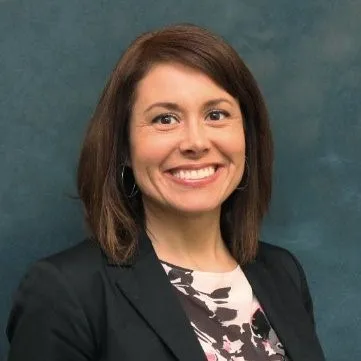
What is one of your favorite quotes?
“Communities and countries and ultimately the world are only as strong as the health of their women.” -Michelle Obama
Why is RIHEL important to you and the community?
RIHEL is important to me as a woman, as a woman of color, and as someone who lacked connections early in my public health career. I have always mentored women of color in order to help connect under-represented populations in public health. Now that I serve on the RIHEL Governing Board, I have the ability to advocate for women and people of color in a broader and more impactful manner.
RIHEL builds leaders using an assets-based approach, and we do all we can to ensure that vulnerable populations have strong leaders that look like them and are a part of their community. I believe in what we offer and the work that we do to help people transform themselves into powerful advocates to better serve their communities. This is something that benefits us all.
I am proud to serve as a board member for RIHEL.

